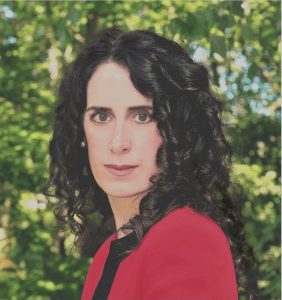
Becoming Like a Child for Technological Advancement
A rich theme emerged in this issue of T&S Magazine: Intellectual Humility (IH). Our community sought truth, knowledge, and understanding in a spirit of humility; we recognized our intellectual finitude [1].
Wound Man affords us a vivid reminder of our physical finitude; we are mortal creatures who are susceptible to wounds, injuries, and contagions. And yet, #WoundPerson challenges us to better attune ourselves to our non-physical vulnerabilities and weaknesses. We are more than corporeal; we are not merely a body with a soul, but moreover a soul with a body [2]. We can envision the extensive, and potentially grave, risks of “data bleedout” when sharing data accumulated through wearables and bearables. #WoundPerson helps us to acquire more broadmindedness to indiscernible risks we might otherwise overlook, or disregard.
Our community demonstrates IH as we are open-minded and receptive to new sources of evidence. We are taught by the non-technological to advance technologically. We learn from the dogs so as to improve machine olfaction and deep learning. We learn from babies and toddlers to learn how to learn, in order to advance artificial intelligence [3]. We also embrace IH as we attempt to impartially investigate opposing perspectives when considering the complex risk-reward scenarios of intelligent machines.
Through allegory, we were warned; we grapple with the disquieting human sensations of fear and regret. We are motivated to reconsider our scientific views and approaches, so as to adopt a healthy fear of unchecked scientific progress. In doing so, we are more likely to avoid Frankenstein-like consequences for humanity. With IH, we would not be like Victor, but rather, we would be disciplined to question ourselves and our actions, beforewe commence, as well as while we are conducting, scientific studies.
With IH, our community will continue to follow the evidence, rather than our own biases or self-interests. IH leads us to better evaluation of information and more balanced assessments of competing perspectives. We are less likely to disregard relevant information, and can thus enjoy better decision making [1]. Although we recognize our knowledge is limited and imperfect as a community; we move forward with IH to best optimize our intellectual pursuits, in humble service to society.
Author Information
 Christine Perakslis is Associate Professor in the MBA Program, College of Management, Johnson & Wales University, Providence, RI. Email: christine.perakslis@jwu.edu.
Christine Perakslis is Associate Professor in the MBA Program, College of Management, Johnson & Wales University, Providence, RI. Email: christine.perakslis@jwu.edu.
To read the complete version of this article, including references, click HERE.






 JOIN SSIT
JOIN SSIT